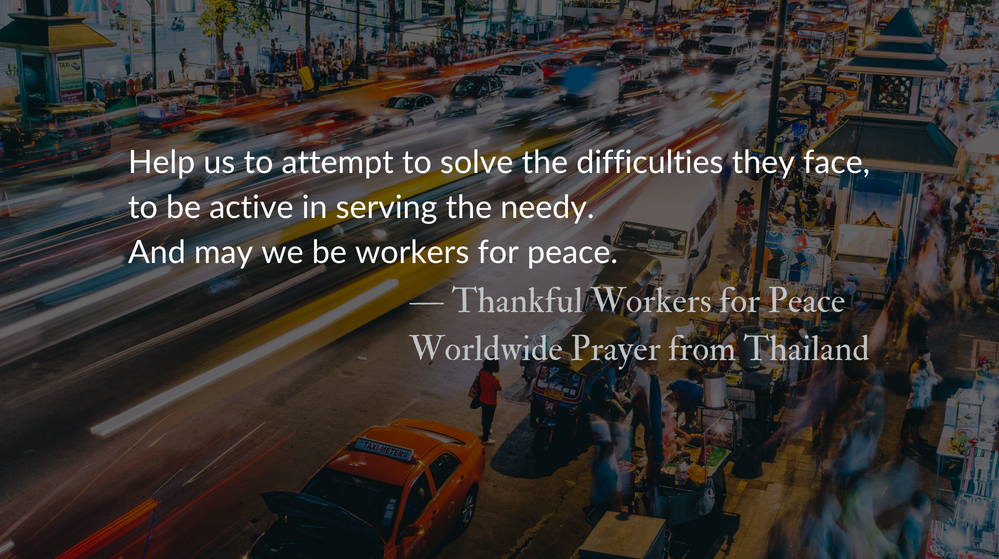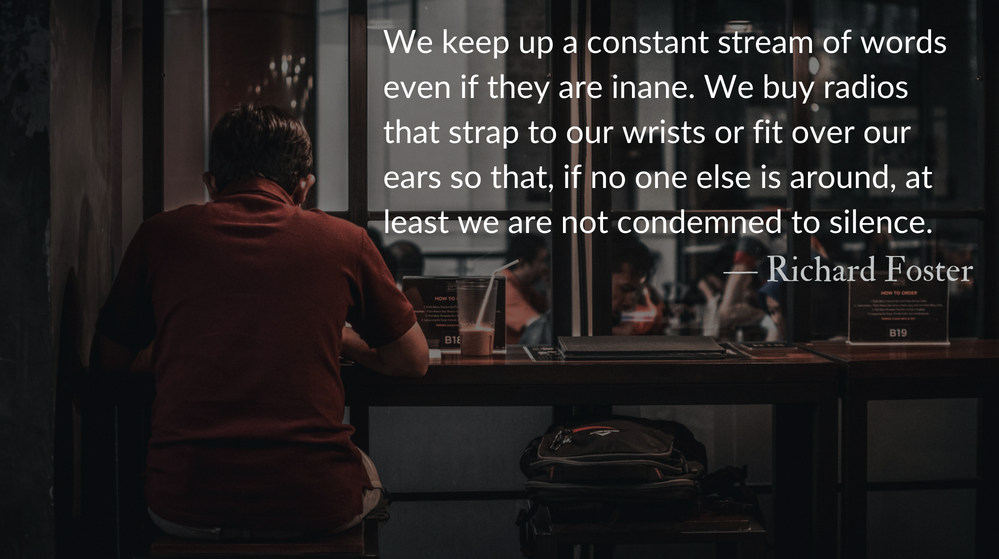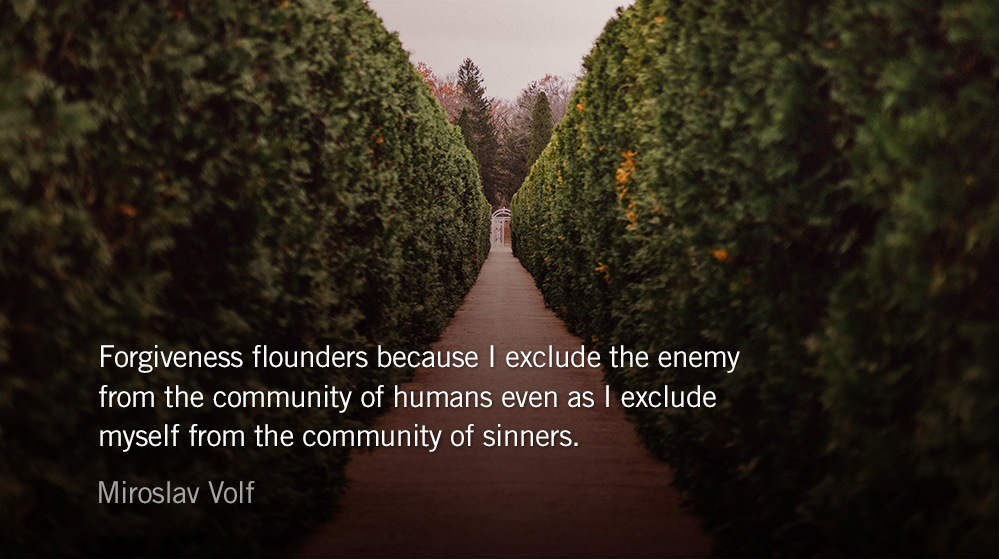Scripture: Mark 5.18-20
As Jesus was getting into the boat, the man who had been demon-possessed begged to go with him. Jesus did not let him, but said, “Go home to your own people and tell them how much the Lord has done for you, and how he has had mercy on you.” So the man went away and began to tell in the Decapolis how much Jesus had done for him. And all the people were amazed.
Just as Jesus left the Gerasene man to spread the gospel to the Decapolis, he would soon leave the disciples to spread the gospel to the world, and he has left us here to follow in their footsteps. May we be as miraculously transformed as the Gerasene man, and as thankful as he, running to the cities with the life-changing message of the gospel. — John
Reflection: Thankful Workers for Peace :: Worldwide Prayer
A prayer of thanksgiving from Thailand
Dear heavenly Father,
We praise you for your love and mercy to all humankind.
We praise you for your Son, our Savior.
We praise you for this wonderful universe,
for the son, the moon and the stars.
You have placed everything in perfect order so that
we may live in peace and harmony with all that
you have created. You have provided sustenance
for your children.
People everywhere face many difficulties,
they suffer,
they cry,
they are starving,
homeless, and helpless.
Help us to attempt to solve the difficulties they face,
to be active in serving the needy.
And may we be workers for peace.
We pray in the name of Jesus Christ.
*Prayer from Hallowed be Your Name: A collection of prayers from around the world, Dr. Tony Cupit, Editor.
Prayer: The Refrain for the Morning Lessons
It is not the healthy who need the doctor, but the sick…And indeed I did not come to call the virtuous, but sinners. — Matthew 9.12-13
– Prayer from The Divine Hours: Prayers for Springtime by Phyllis Tickle.
Prayers from The Divine Hours available online and in print.
Today’s Readings
Jeremiah 19 (Listen – 2:58)
Mark 5 (Listen – 5:21)
Additional Reading
Read More about Freedom for Prisoners
We fear Christ partly because the freedom Christ brings is undeserved and is not merely for the noble.
Readers’ Choice
In August we will look back at our readers’ favorite posts of the year. Submit a Readers Choice post.
Tell us about a post and what it meant to you. What post confronted you?











